
Major Scale Formula YouTube
This formula uses a combination of whole-steps and half-steps to leave out 5 of the 12 notes. The remaining 7 notes are your major scale. The note you begin on gives the scale its name. For example, applying the Major Scale Formula and starting on a C note will give you a C major scale. Similarly, starting on an Ab note will give you an Ab.

Formula to make the Major Scale on piano. Pick a random note, apply the
Like every major scale, A major follows a certain formula of whole and half steps which is: Whole step, whole step, half step, whole step, whole step, whole step, half step. This is abbreviated to W W H W W W H. A Major Scale With Whole and Half Steps Using the British terminology of tones and semitones, this would be:

The Major Scale Formula Free Guitar Lessons
To make a major scale, we just have to follow a very simple formula of semitones and tones (whole steps and half steps) between each note. That formula is: T - T - S - T - T - T - S Or in whole and half steps, a major scale would be this formula: W - W - H - W - W - W - H
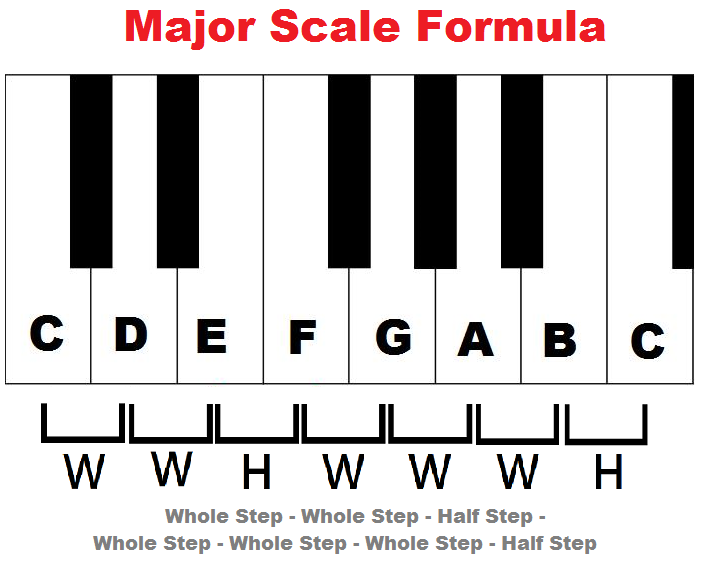
Why Scales Are Important, and How To Build a Major Scale
Formula The major scale formula is W-W-H-W-W-W-H. This stands for whole step, whole step, half step, whole step, whole step, half step. You can for any major scale using this formula. Half steps and whole steps are the distance from one key to another. A half step is the distance from one key to the key that is closest to it.
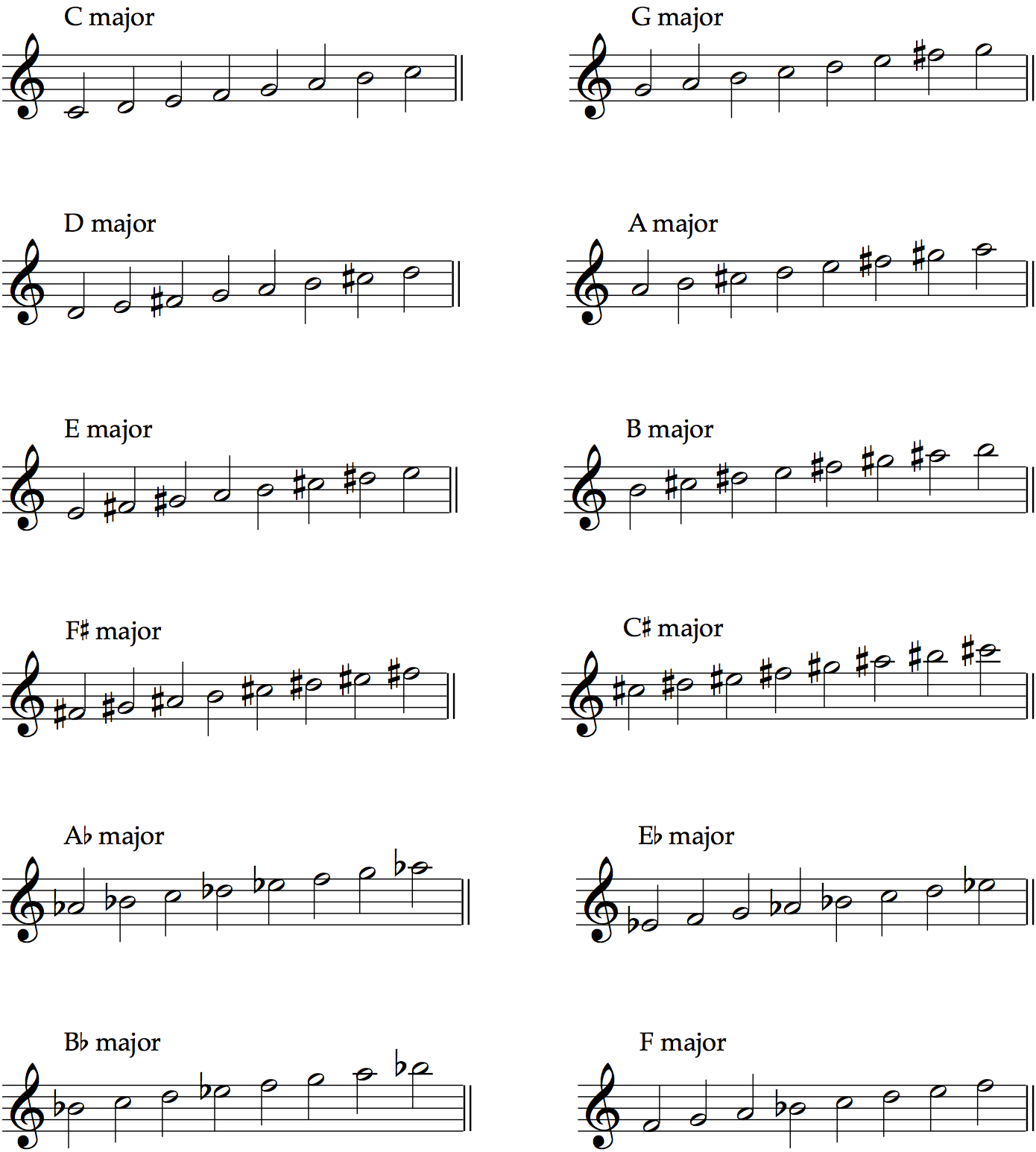
How many major scales are there and why? school of composition (2023)
The Major Scale A scale is a selection of certain notes within an octave. The first scale that we will discuss is the major scale. The major scale is constructed with this formula. W's represent whole steps and h's represent half steps. Let's build a C Major Scale. Our starting note will be C. From the C, we will take a whole step to D.
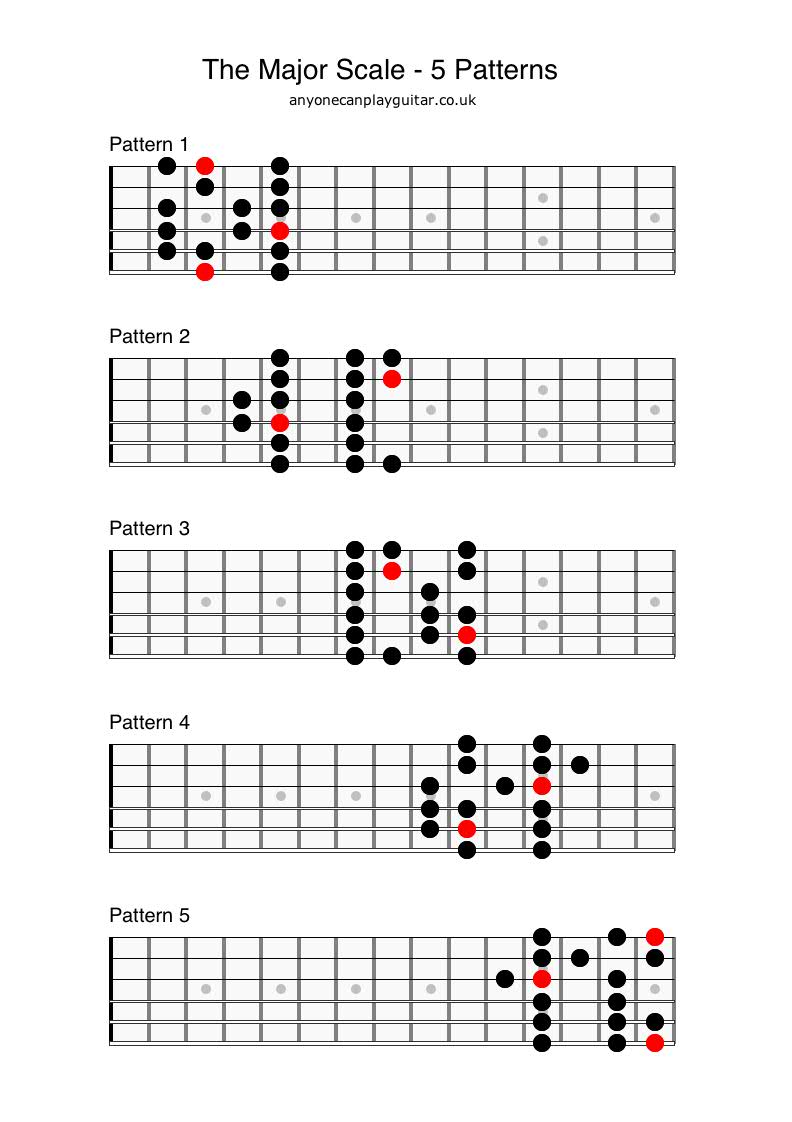
Learn scales on guitar Major scales on Guitar
Major Scale: Mathematically the major scale is produced using the following formula. 1 - 2 - 3 - 4 - 5 - 6 - 7 - 8 S - W - W - H - W - W - W - H C - D - E - F - G - A - B - C Very similar construction is used to develop the other scales mentioned above. There is a specific way that the Music Learning Workshop uses to teach scales.

The Major Scale Formula Free Guitar Lessons YouTube
Music Theory The Formula To Major & Minor Scales by Benjamin November 30, 2020 Major and Minor scales are the two most commonly used scales in music today. In Music Theory, there is a formula to instantly figure out the notes in any major or minor scale. It will allow you to create musically correct chords, melodies and harmonies.
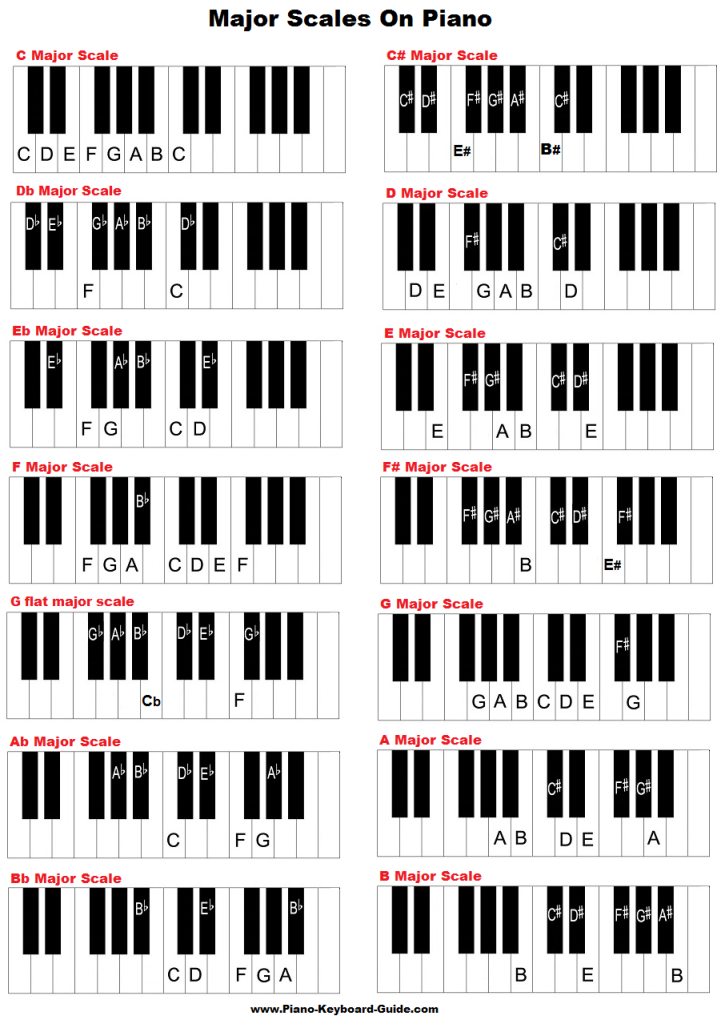
All Major Scale Saxophone , Flute , and Ukulele Class in Saigon
The secret formula for a major scale is: T-T-S-T-T-T-S T=Tone (whole-tone) S=Semi-tone (half-tone) Major scale pattern: 2 Types of major scales Major scales with flats (b) All music scales that has the term "flat ( b )" in its name is a major scale with flat.

The Allimportant Major scale Open D Tuning
A half step from E is F. A whole step from F is G. A whole step from G is A. A whole step from A is B. A half step from B is C, back to the top. So, the C major scale ends up looking like this: Writing Major Scales in Any Key The above 'major scale formula' is all you need to write a major scale in any key.
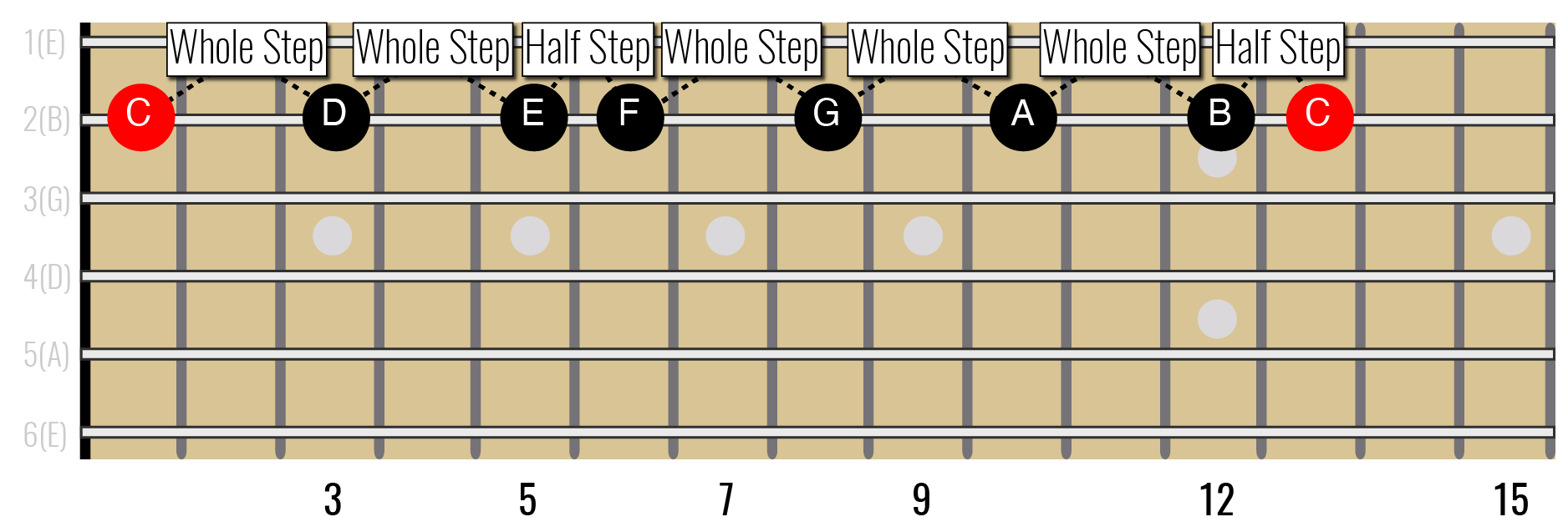
The Major Scale on Guitar — Guitar Music Theory Lessons by Ry Naylor
Some people roll their eyes at the mention of theory and scales, but you don't have to be one of them. In this post I'm going to share some practical knowledge with you about something that will be foundational in your rhythm and lead guitar playing for years to come, major scales and the formula (pattern) to build them.
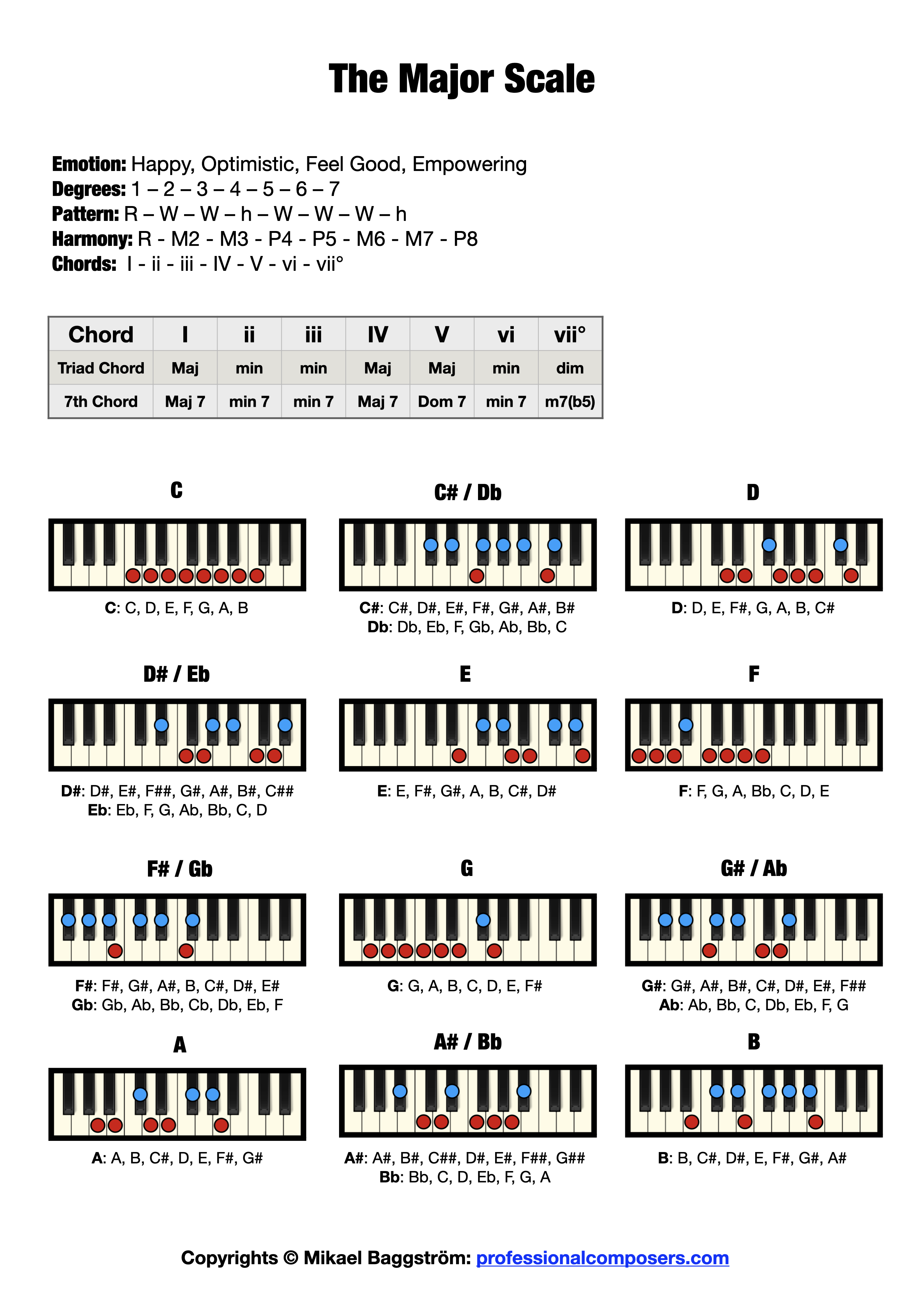
The Major Scale on Piano (Free Chart + Pictures) Professional Composers
For example, all major chords have a formula of 1 3 5. That means the chord C major is composed of the 1st, 3rd & 5th notes of the C major scale (C, E & G) arranged in any order, plus any optional octave doubling of those notes. The chord C minor, on the other hand, has a formula of 1, flat 3 and 5. C and G (1 & 5) are still needed, but instead.
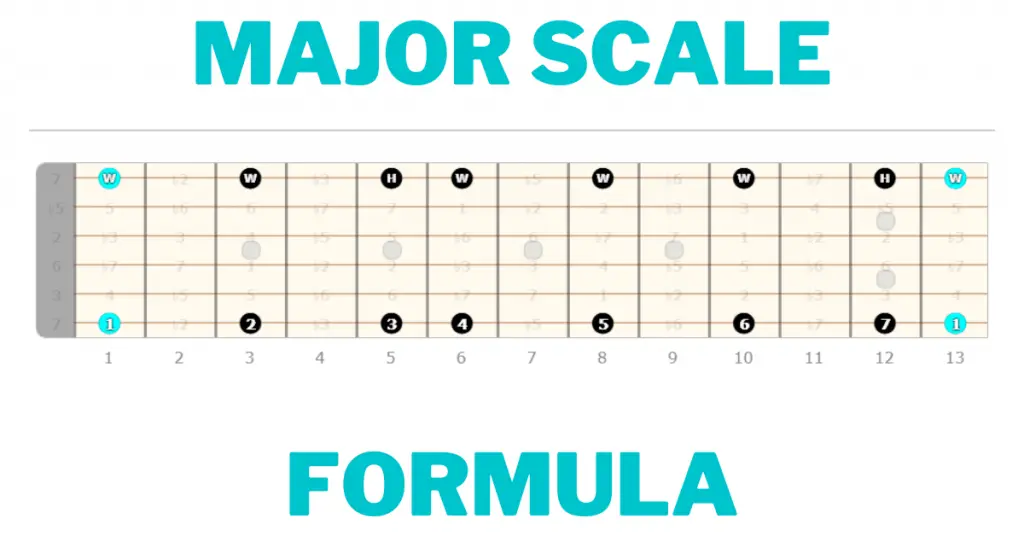
Major Scale Formula Definition (Guitar) Guitarfluence
The pattern of whole and half steps characteristic of a major scale The intervals from the tonic (keynote) in an upward direction to the second, to the third, to the sixth, and to the seventh scale degrees of a major scale are called major. [1] A major scale is a diatonic scale. The sequence of intervals between the notes of a major scale is:

Learn major scales piano, treble clef, charts, pattern/formula, chords
The formula for constructing a major scale is: Whole Step (W) Whole Step (W) Half Step (H) Whole Step (W) Whole Step (W) Whole Step (W) Half Step (H) Let's break this down further: Start on a note (the tonic). Move up a whole step (two half steps) to the second note. Move up another whole step to the third note.

The Major Scale The Most Important Guitar Scale to Learn
The Major Scale The major scale consists of 7 notes and an octave note (the root note played an octave higher/lower). If we take a look at the G major scale, its notes are as follows: Listen to the audio to hear how the G major scale sounds: Major Scale Pattern of Steps

Major Scale Formula Music Theory on the Piano YouTube
The Eb (flat) major scale starts and ends with the note Eb. Constructing this type of scale is rather simple if we employ a simple formula. This formula has to do with the distance (intervals) between the notes. Below is the formula we use to construct these scales using Whole Steps (W) and Half Steps (H). W W H W W W H.
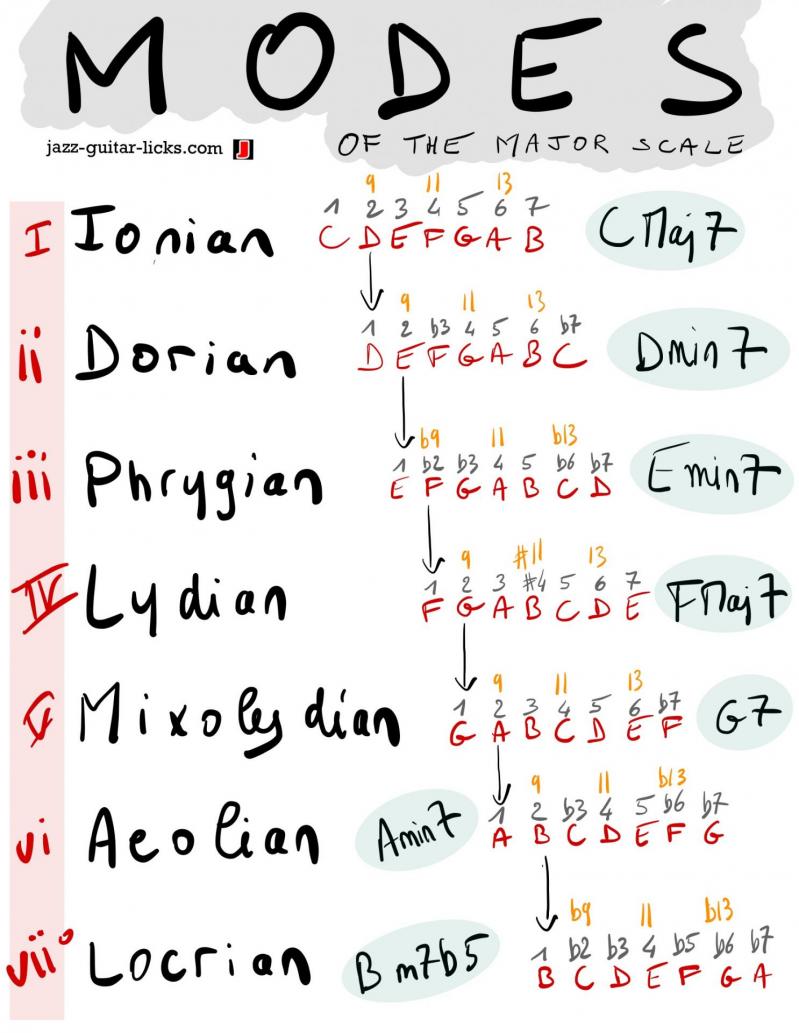
Modes of The Major Scale Music Theory
As long as you know the major scale formula, you can start on any note or key and form a major scale. Starting on C, go up a whole step to D, a whole step to E, a half step to F, a whole step to G, a whole step to A, a whole step to B and lastly, a half step to C. My new book, Piano Scales Made Simple , will help you with your scales.